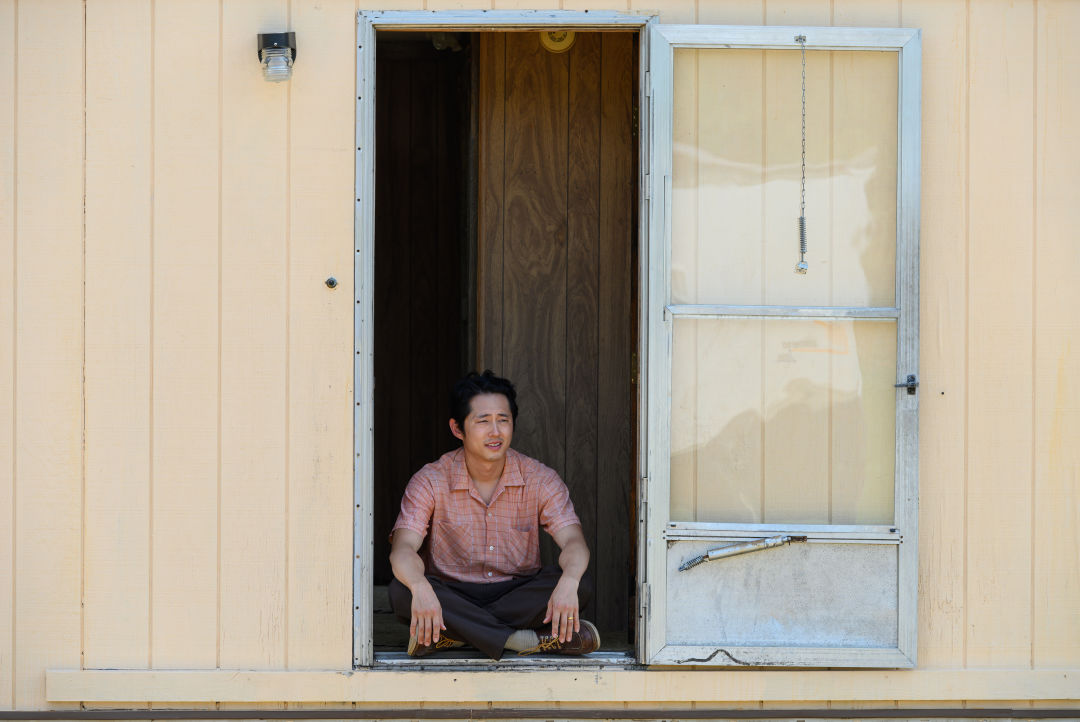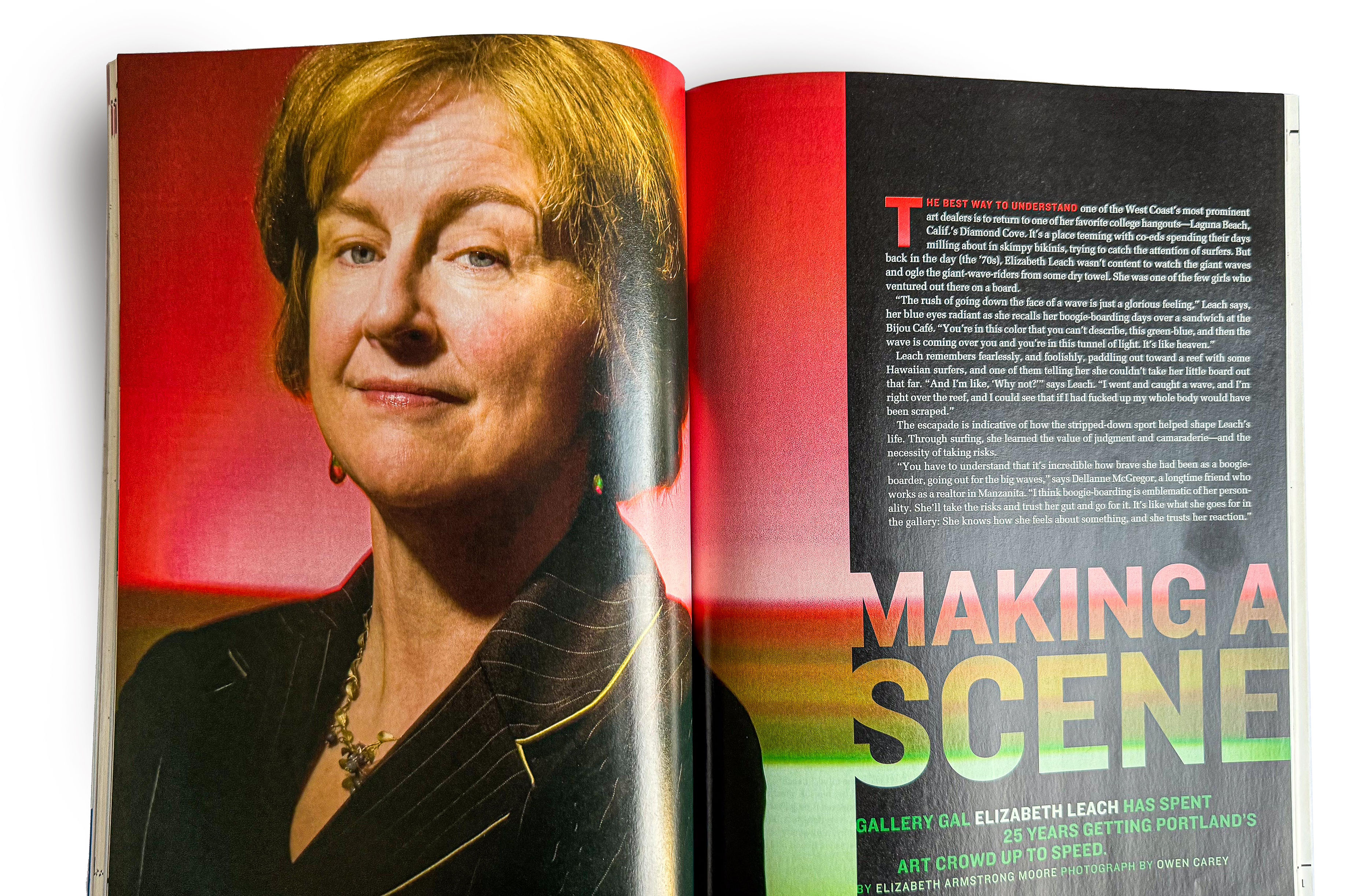What to Watch at the 2021 Portland International Film Festival

Steven Yeun in Minari
Image: Courtesy Elevation Pictures
This weekend, the Portland International Film Festival returns for its 44th year, after a truncated 2020 iteration and brief fall revival. Rather than retreat to a fully virtual model, the NW Film Center has opted for a hybrid presentation: certain titles will be screened at a Zidell Yards drive-in, and others will be available online for the festival's full March 5–14 duration. In addition to a robust program of shorts and features, PIFF will also offer a pair of virtual special events.
Keeping with NW Film Center executive director Amy Dotson’s commitment to "cinema unbound," films range from the local to the national to the international, and the drive-in will screen old classics like The Iron Giant and The Matrix beside new ones like Minari. Check out the full schedule here, and keep reading to find out what we're most excited about this year.
Bitter Love
March 5–14, $4–9, cinemaunbound.org
Splitting the difference between Steven Soderbergh’s Let Them All Talk and Lance Oppenheim’s Some Kind of Heaven, this Polish documentary follows a group of (mostly older) Russians on a cheap pleasure cruise as they fall in and out of love and discuss their varying levels of historical success with it. Bitter Love looks funny and fascinating, a doc-cum-character study in the vein of something like last year's Bloody Nose, Empty Pockets, and we can't wait to climb aboard.
Minari
6:30 & 9 p.m. Friday, March 5, $40–60 per car, Zidell Yards Drive-In
This patient, radiant family drama just scooped up the Golden Globe for best foreign language film, and it’s certain to dominate conversations as a major Oscar contender for the next month. Lee Isaac Chung essentially tells the story of his own family’s immigration from Korea to rural Arkansas in the 1980s, with Steven Yeun as his father, Han Ye-ri as his mother, legendary South Korean actress Youn Yuh-jung as his grandmother, and 8-year-old Alan Kim as himself.
Minari traces the way American ideals both strained and nourished Chung’s family as it gently prods at the very concept of “fitting in.” It’s generous, wonderfully shot, and so soul-filling that reducing it to plot beats feels cheap. Suffice it to say there’s no better way to welcome in the spring.
See Me
March 5–14, $4–9, cinemaunbound.org
The first work to emerge from Artists Rep’s new DNA: Oxygen initiative, See Me is a short film that follows three fictional Black Portlanders as they begin their day during the pandemic. In this intimate chronicling of their mornings—brushing teeth, logging on to inane Zoom meetings, making toast, all soundtracked by news of racial justice protests and the disproportionate toll the virus has taken on Black communities and the beeps and buzzes of our ever-connected world—we are brought close for a quiet and gorgeous 20 minutes. With a Shakespearean voiceover and a moment of exquisite animated glory, stylistic flights are expertly juxtaposed with the closed interiority of the worlds we’re witnessing. The movie, deftly directed by Dawn Jones Redstone, was created entirely with a BIPOC production team and cast, the latter making profound work of their limited screen time.

Image: Courtesy NW Film Center
Shiva Baby
March 5–14, $4–9, cinemaunbound.org
Emma Seligman’s adaptation of her own 2018 short is a ruthless, diamond-sharp black comedy that’s scored like a horror movie and plays like an extended panic attack. Danielle (Rachel Sennott) is a college drifter who’s recently broken up with her girlfriend (Molly Gordon) and taken on an older sugar daddy (Danny Deferrari). When she attends a shiva with her parents in the New York suburbs for a woman she barely knows, she runs into both flames—plus her older beau’s perfect wife (Diana Agron) and wailing titular infant.
The movie is near-perfectly cast (Polly Draper, as Danielle’s mother, gets approximately 8,000 applause-worthy zingers), and the real sympathy it harbors for each of its characters keeps things from skewing too icy or cruel. The “mundane family meeting-as-genre flick” conceit calls to mind Trey Edward Shults’s Krisha, but where that movie clevered itself to death, Shiva Baby sticks the landing. It’s a treatise on young millennial aimlessness that doesn’t announce itself as one, and the brisk 77 minute runtime ensures you’ll probably want to revisit it shortly after the credits roll.
Who’s On Top?
March 5–14, $9, cinemaunbound.org
This documentary, narrated by George Takei and directed by Portland filmmaker Devin Fei-Fan Tau, chronicles a group of local LGBTQ climbers as they prepare to summit Mt Hood. Spanning a broad range of ages, identities, and abilities, the subjects discuss coming out and life in Oregon, bolstered by big beautiful footage of their incredible journey up the snowy peak.




